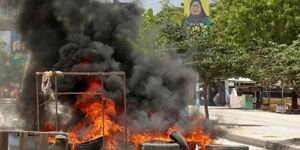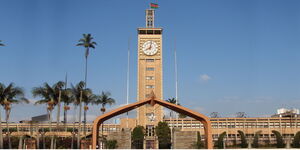The National Assembly’s Public Investments Committee on Commercial Affairs and Energy has expressed concerns that Kenya Power Lighting Company (KPLC), the country's electricity distribution firm, might collapse amid its growing financial crisis.
While grilling Kenya Power Chief Executive Officer (CEO) Joseph Siror on Wednesday, July 9, the lawmakers established what they described as “a worrying picture of a company battling deep-seated structural and operational issues, despite serving as the backbone of the country’s power supply.”
This was after going through the utility’s audited financial statements for the financial years 2018/19 to 2022/23.
According to the Auditor-General’s report for the year ending June 30, 2019, the company’s current liabilities stood at Ksh115.2 billion against assets of Ksh44.2 billion, leaving a negative working capital of Ksh71 billion.
“This marked the third consecutive year of deficits, raising doubts about the company’s ability to remain solvent,” stated the MPs.
However, Siror attributed the financial crisis to capital-intensive projects implemented between 2014 and 2018 under the government’s universal electrification agenda and the ambitious 5,000 MW power generation plan.
“Most of the funding came from medium-term commercial loans, yet the projects we undertook were long-term in nature. Delays in tariff reviews and high system losses only worsened the cash flow situation,” the CEO explained.
Further, he explained that to stabilise the company, KPLC rolled out a multi-faceted recovery strategy: reducing system losses by 0.5 per cent annually, extending money market facilities to manage liquidity, enhancing debt collection, and smart metering.
Other strategies included suspending non-essential capital projects and engaging the Energy and Petroleum Regulatory Authority (EPRA) to realign tariffs and recover Ksh11.9 billion owed from the Rural Electrification Scheme.
Even so, the MPs flagged other issues such as inflated electricity bills, failed infrastructure projects, and glaring IT vulnerabilities.
Lawmakers also raised concerns about procurement irregularities, including a Ksh55.9 million direct contract awarded in 2018 to an advertising firm. While management claimed it was a temporary solution, the Auditor-General flagged it as a breach of the Constitution and procurement laws.
Further, Wajir East MP Farah Yussuf raised a case involving a diesel generator in his constituency that has never functioned properly since its commissioning three years ago.
“According to KPLC the generator lacks batteries and fuel, yet residents are billed for services they don’t receive and also pay taxes,” he lamented.
For their part, KPLC admitted the generator was meant to complement solar energy but failed due to logistical and supply issues. However, MPs called it a "white elephant" and disclosed they would conduct fact-finding missions to Wajir and other counties with stalled or underperforming energy projects.












